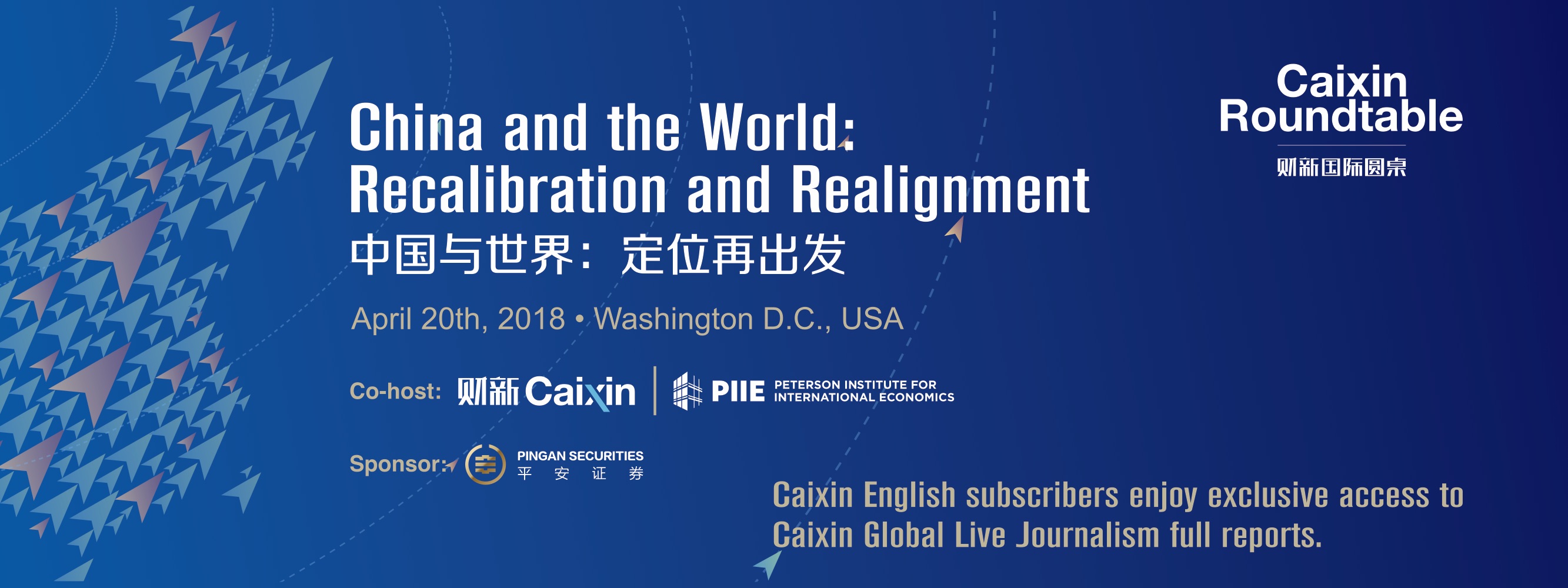
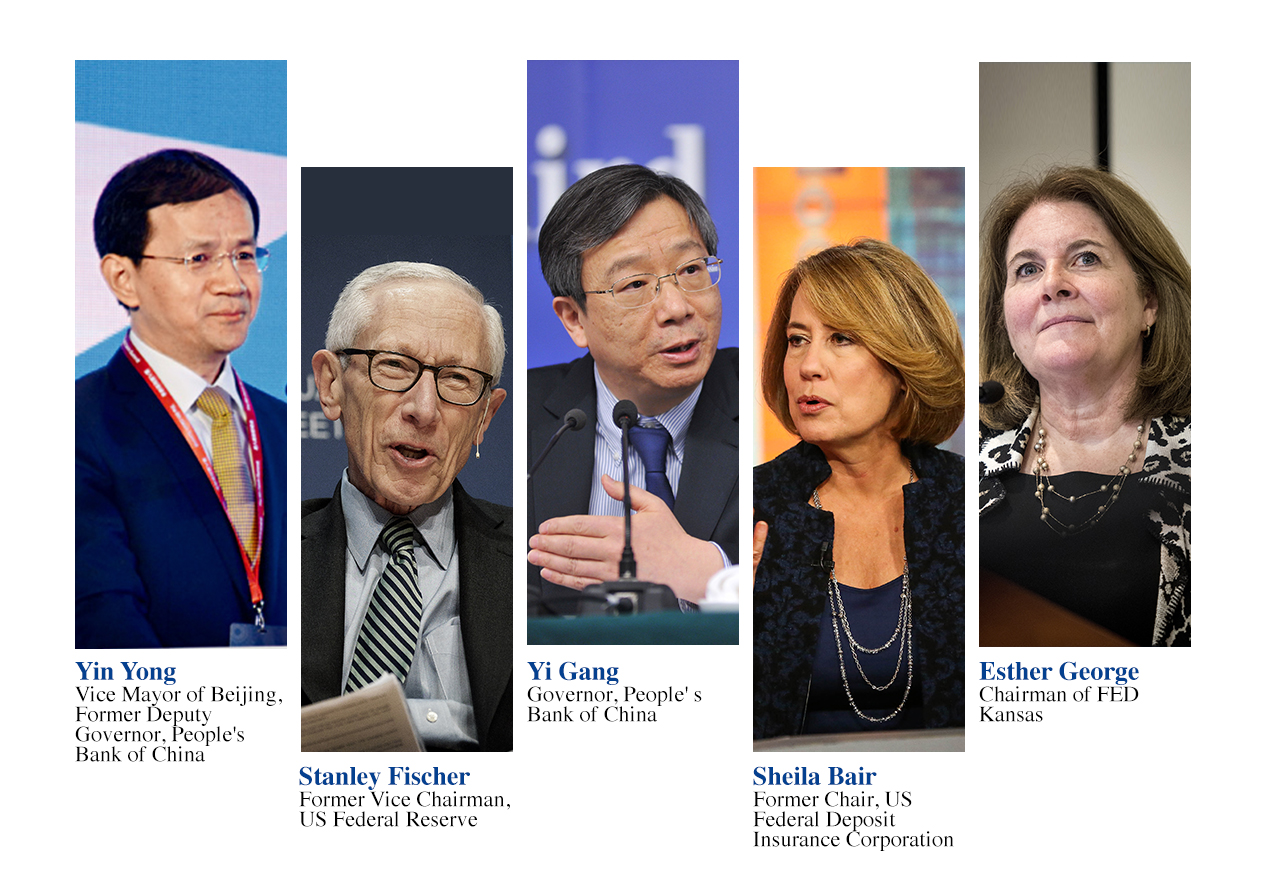
-
1
China’s Central Banker Analyzes U.S. Trade Deficit
May 7, 2018 -
2
Reform Best Strategy to Address Uncertainties, China Central Banker Says
Apr. 21, 2018 -
3
Panel Calls for Prudent Financial Regulations and More U.S.-China Cooperation
Apr. 21, 2018 -
4
U.S.-China Imbalance Needs Global Context, Beijing Vice Mayor Says
Apr. 21, 2018
Opening Addresses
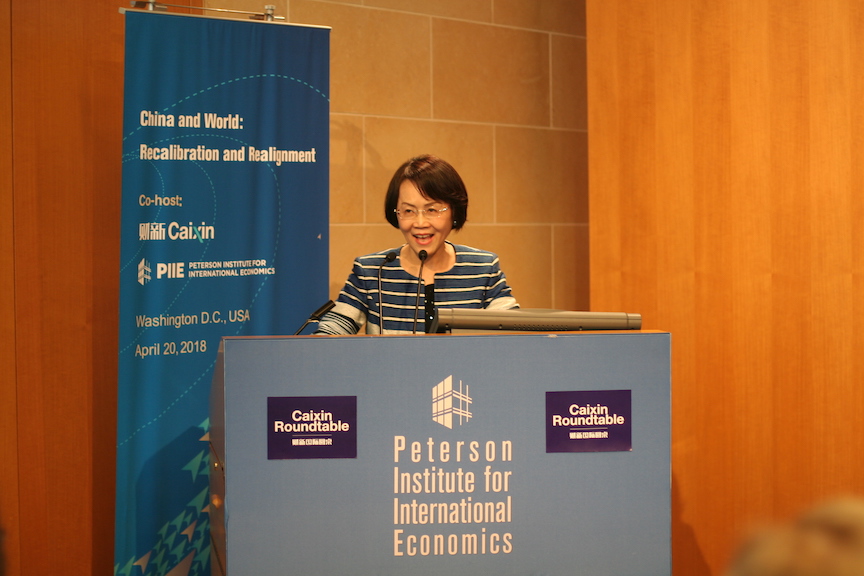
Adam S. Posen
Peterson Institute for International Economics
Legitimate reasons exists for the disputes between China and the U.S. But constructive dialogue, and analytically-based assessments are needed to avoid risks such as a trade war, and to foster the advantages that further integration can bring to both countries.
More than anything, conflict should be addressed in a rules-based framework — with a focus on economic, technocratic, constructive elements — not a “political tit-for-tat.”
Hu Shuli
Founder of Caixin Media
China’s opening-up is the cornerstone of the country’s rise over the last 40 years. Looking at this reform historically, we see examples of China turning tensions and challenges into sources of renewed thrust for further development. It is under this wider, historical scope that we can better understand both China’s path forward and its relations with the U.S.
Financial Regulation
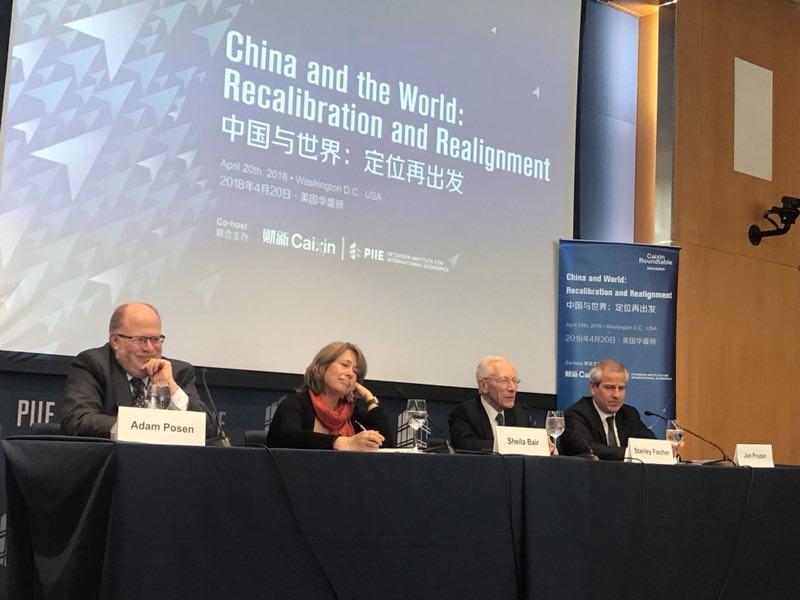
Sheila Bair
President, Washington College; former chairwoman, The Federal Deposit Insurance Corporation
We should applaud China’s decision to tighten financial regulation, and in comparison, advocate that the U.S. adopt such a longer-term view, especially under the current healthy economic conditions, Bair argues. China is ahead of the U.S. in using technology to deliver financial services, as well as in confronting regulatory arbitrage.
Policy makers should remove unnecessary regulatory barriers to financial innovations, which will ultimately help consumers. But we should be careful not to undermine the regulated financial system in allowing arbitrage to occur.
Jonathan Pruzan
Chief financial officer, Morgan Stanley
A recent report from Morgan Stanley’s research team predicts that China will achieve high income status by 2027. Pruzan advises that, in order to increase the attractiveness of its domestic financial market to foreign investors, China should continue to refine its rules, and if it wants to be a true open market and operate globally, it has to allow international companies to operate as they do in other parts of the worlds.
Stanley Fischer
Former vice chairman, The Federal Reserve
Fischer praises China for acting “more like an adult” in the recent trade disputes, and stresses the importance of international cooperation and coordination in terms of regulation. He points out that China took part in this dialogue in the “most responsible” way.
But he concludes by challenging economists and observers of China’s financial system to think hard about what degree of risk we should be willing to tolerate when constructing rules for economic activity. No matter how brilliant a country’s financial stewards are, he warns, there will always be crises.
Reform and the Global System
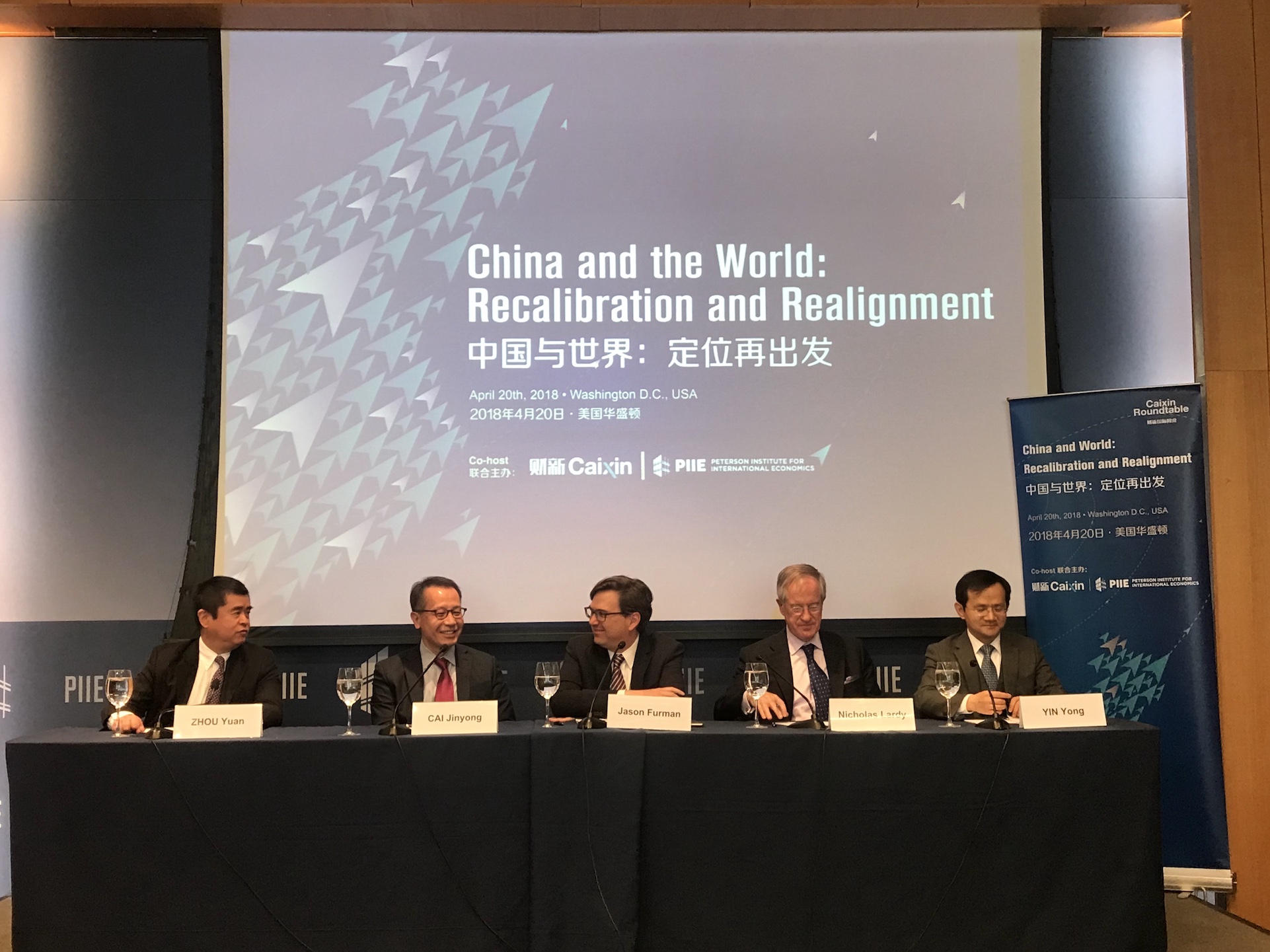
Cai Jinyong
Former CEO, International Finance Corporation
The U.S. has long viewed SOEs as political tools wielded by China. But this view is mistaken — as SOEs were largely constructed to help foster China’s unique development.
In more market-based sectors, China must find a way to maintain high productivity and competitiveness in the face of rising income levels and costs of labor.
Jason Furman
Economist and professor at Harvard University; economic adviser for the Obama administration
Rebalancing: The bilateral trade balance is not a tariff issue, it is a macroeconomic issue. Over the last decade, the world has seen a narrowing of external imbalances, and the two biggest contributors have been the U.S. and China. Imbalances in both countries peaked around 2006 and have started improving, with China’s healthy current account surplus and the U.S.’s moderating current account deficit.
Nicholas Lardy
Senior research fellow, Peterson Institute for International Economics
China’s 35 years of reform have been marked by the rise of the market and the increasing importance of the private business. But in the last five years, we’ve seen an erosion of the role of the market in private business and increasing dominance of the state in resource allocation.
Yin Yong
Vice mayor, People's Government of Beijing Municipality; former deputy governor, People's Bank of China
The search for solutions to the trade imbalance between China and the U.S. should be viewed under the broader backdrop of the global supply chain. The current supply chain is chosen by the market and any artificial adjustments through a trade war will cost both the U.S. and China.
China as Global Investor
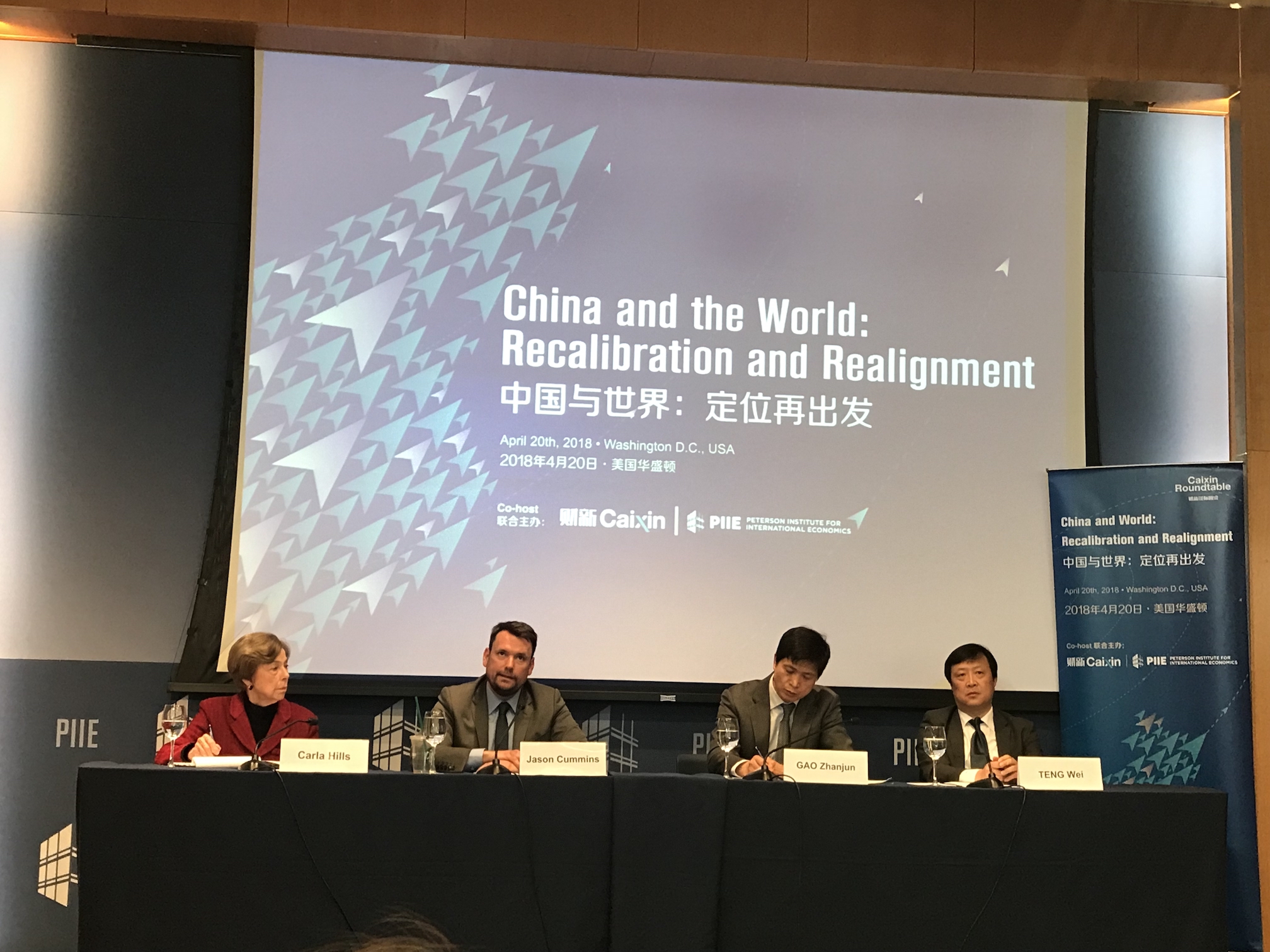
Zhang Tao
Deputy managing director, International Monetary Fund
Global growth is as strong as we’ve seen since the financial crisis, but the good times won’t last indefinitely. Advanced economies can expect short-term growth acceleration but mid- to later-term deceleration. Fiscal stimuli around the world will be phased out, including in large economies such as the U.S. and China, and financial conditions will tighten as central banks normalize their monetary policies.
Jason Cummins
Chief U.S. economist and head of research, Brevan Howard Inc.
Public and private returns on infrastructure investments are be very different, so motivations needs to be clearly understood, as do the calculations of how we place value on such returns. Furthermore, we cannot overstate the need to emphasize investment as the key driver of productivity.

Agenda | April 20th
-
12:00-13:30
US-China Economic Dialogue
High-level, off-the-record lunch discussion, invite-only
Venue: PIIE
Speaker:
Yi Gang, governor and deputy party secretary, People’s Bank of China
-
13:45 – 16:20
China and the World: Recalibration and Realignment
On-the-record conference
Venue: PIIE
-
13:45 – 13:50
Opening Address
Adam S. Posen, president, Peterson Institute for International Economics
Hu Shuli, The Founder of Caixin Media
-
13:50 – 14:40
Panel Discussion I: International Collaboration on Financial Regulations
Panelists:
Stanley Fischer, former vice chairman, The Federal Reserve
Jon Pruzan, chief financial officer, Morgan Stanley
Tu Guangshao, vice chairman, China Investment Corporation*
Sheila Bair, president, Washington College; former chairwoman, The Federal Deposit Insurance Corporation
Moderator:
Adam S. Posen, president, Peterson Institute for International Economics
-
14:40– 15:30
Panel Discussion II: China's Future Reform and the Fate of the Global Economic System
Panelists:
Yin Yong, vice mayor, People's Government of Beijing Municipality; former deputy governor, People's Bank of China
Cai Jinyong, former CEO, International Finance Corporation
Jason Furman, economist and professor at Harvard University; economic adviser for the Obama administration
Nicholas Lardy, senior research fellow, Peterson Institute for International Economics
Moderator:
Li Xin, managing director, Caixin Global; managing editor, Caixin Media
-
15:30 – 16:20
Panel Discussion III: China as Global Investor
Opening Speech:
Zhang Tao, deputy managing director, International Monetary Fund
Panelists:
Zhou Yuan, former chief strategist, China Investment Corporation
Jason Cummins, chief U.S. economist and head of research, Brevan Howard Inc.
Teng Wei, executive director and chairman, Ping An Securities Group (Holdings) Ltd.
Gao Zhanjun, former managing director, CITIC Securities; visiting scholar at Harvard University
Moderator:
Carla Hills, Carla A. Hills, Former U.S. Trade Representative
Credits
Produced by Tanner Brown and Zhang Kaijun. Designed by Lu Wanqi. Programmed by Wang Qunxiang


